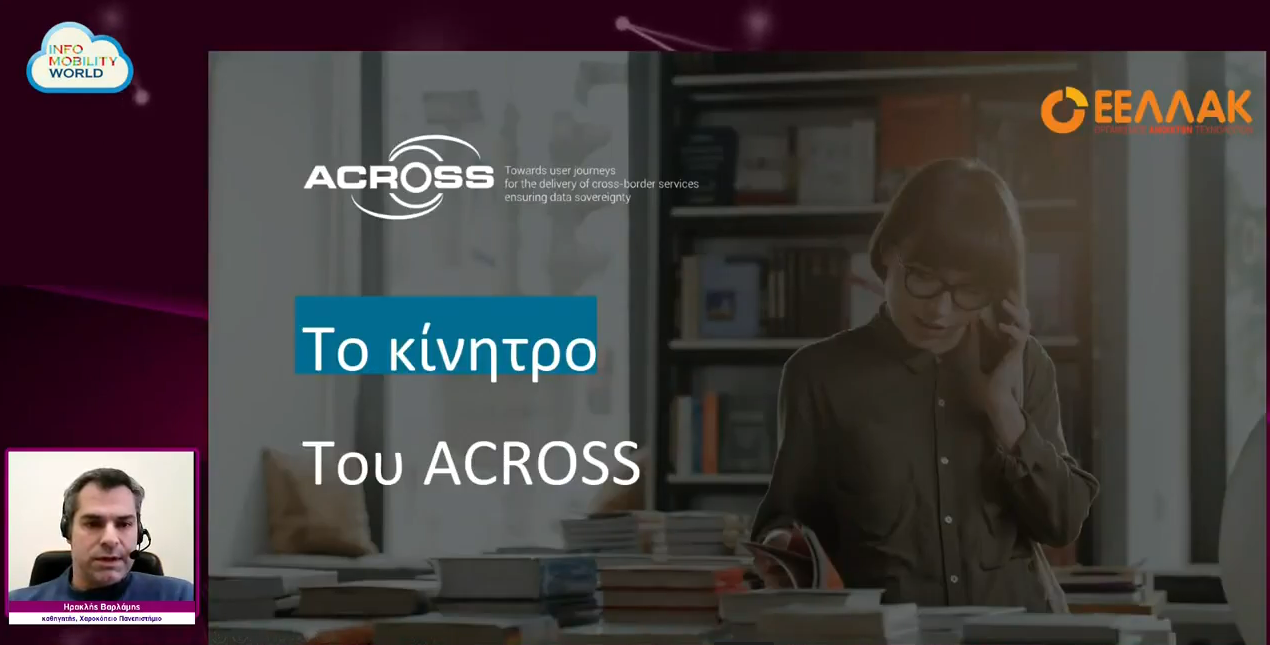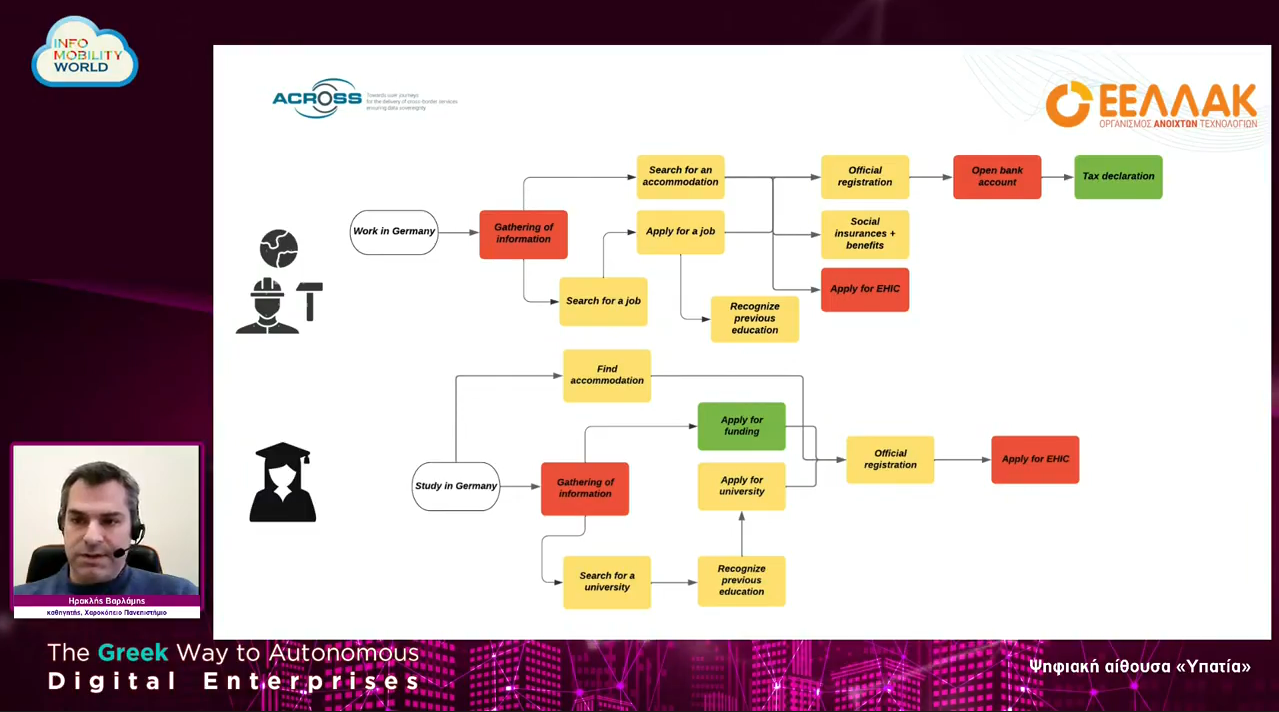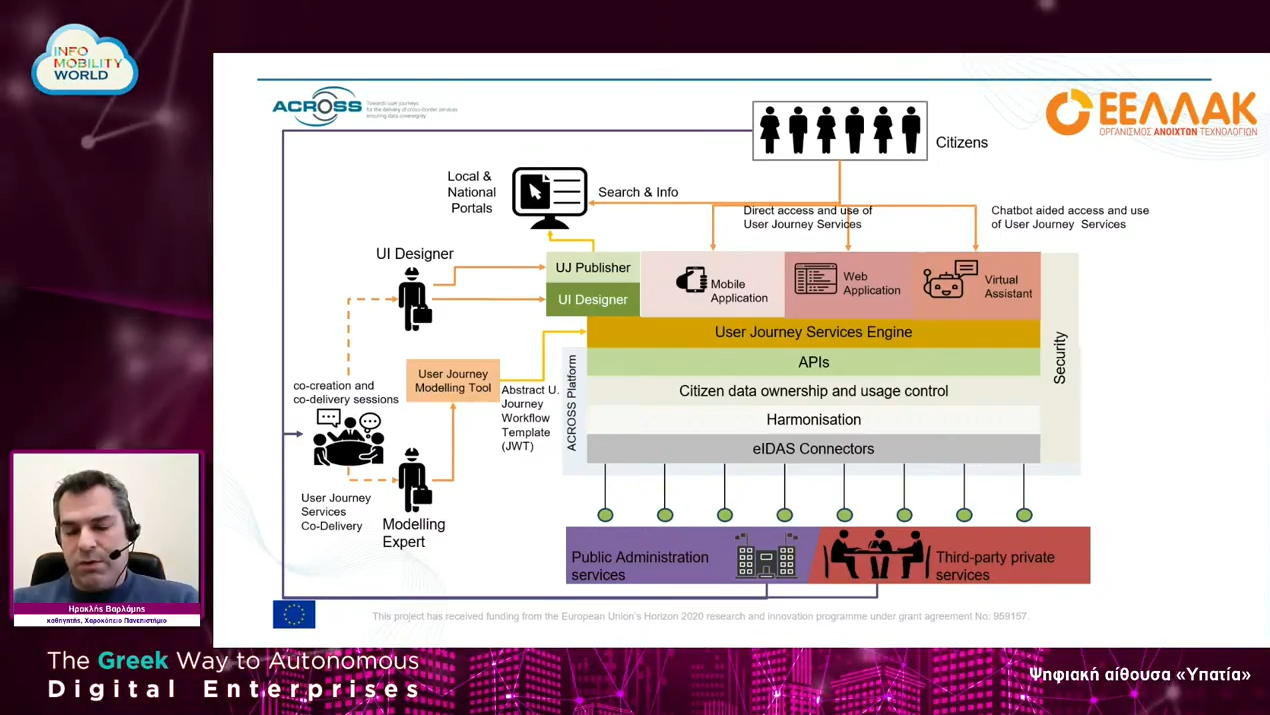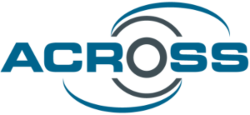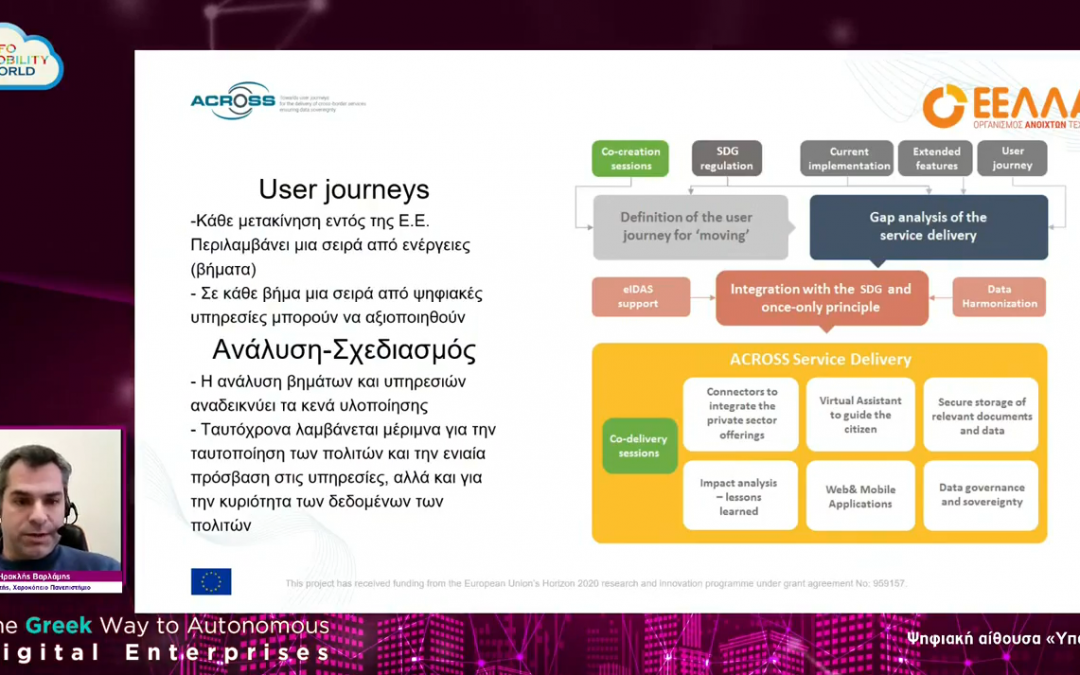The following note summarizes the content of the presentation given by Prof. Iraklis Varlamis, representing GFOSS in the 24th «Greek ICT Forum – InfoMobility World» about the Across EU project.
The presentation started with a brief introduction of the structure and objectives of the Greek FOSS by Prof. Varlamis. GFOSS is a consortium of 37 Universities and Research Centers in Greece that aims in promoting openness in Software, Standards, Content, Data etc with applications in education, government and business.
GFOSS participates in the European RIA project “ACROSS” with the full title “Towards user journeys for the delivery of cross-border services ensuring data sovereignty”, which has as its main objective the holistic support of the movements of citizens within the European Union, through the management of cross-border services into meaningful sequences of actions that must be done before, during and after the cross-border journey.
ACROSS is a research project, with a three year duration, that is already running its 1st year of implementation. It has 10 partners from seven countries and aims to follow a user-centric service design model and to set a human-centered example of citizen-based data control (e.g. the MyData model).
The main motivation behind the project is the increased rate of population movement within the EU, and the emphasis is mainly given on moving abroad for studies and work. This increase creates similar demands from citizens (e.g. services that are easy to understand and use, personal data protection according to the EU rules, etc.) and corresponding challenges for the public administration (e.g. provide interoperable services by overcoming administrative, organizational, technological and legal barriers).
The vision of ACROSS is to search and adopt European regulations such as the Single Digital Gateway Regulation, the Once Only Principle etc., to take into account Your Europe and the national central government portals and activate a new user-centered participatory design model, which assumes interoperable, cross border services and own-governance of their data for citizens.
Every movement within the EU is performed in a series of actions (steps) that utilize the respective digital services. The analysis of existing services and the services needed for a journey is expected to highlight the implementation gaps. At the same time, care is taken for citizens identification and authentication and for providing uniform access to services. The main engagement of GFOSS is on the co-specification of services and the configuration of citizen paths in their cross-border journeys, the empowerment of citizens in self-management or (better) control of their data, as well as on the support of the Greek pilot.
A brief summary of the steps for the two cross-border journeys (i.e. for studies and work) has been presented, as well as a sample flow that highlights the missing services, the services that are under development and those that are already available in the pilot countries (i.e. Greece, Estonia and Germany). Finally a draft list of digital services and missing services for Greece has been shown.
The presentation closed with an overview of the ACROSS architecture that comprises the co-operational design and modeling of citizen journeys and the Across portal UI, the virtual assistant that will guide citizens in their steps and the underlying APIs and eIDAS connectors that allow public administration and third party companies to provide interoperable cross-border services, that are necessary for accomplishing EU citizens’ journeys.
